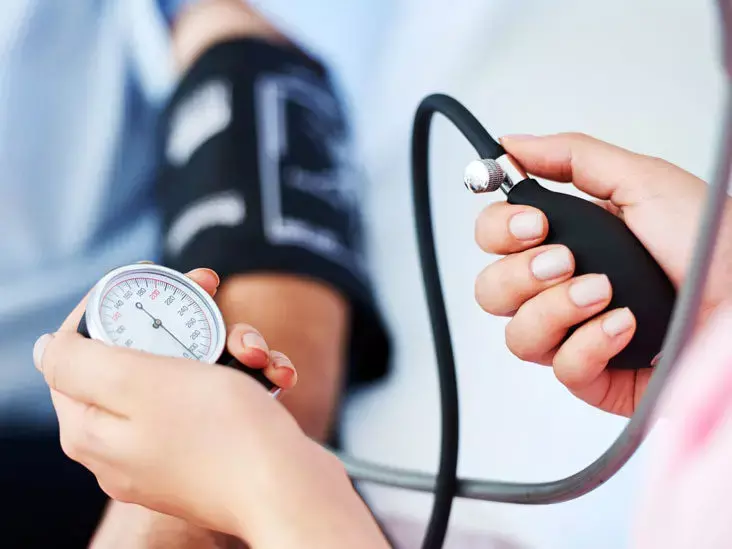- Home
- Medical news & Guidelines
- Anesthesiology
- Cardiology and CTVS
- Critical Care
- Dentistry
- Dermatology
- Diabetes and Endocrinology
- ENT
- Gastroenterology
- Medicine
- Nephrology
- Neurology
- Obstretics-Gynaecology
- Oncology
- Ophthalmology
- Orthopaedics
- Pediatrics-Neonatology
- Psychiatry
- Pulmonology
- Radiology
- Surgery
- Urology
- Laboratory Medicine
- Diet
- Nursing
- Paramedical
- Physiotherapy
- Health news
- Fact Check
- Bone Health Fact Check
- Brain Health Fact Check
- Cancer Related Fact Check
- Child Care Fact Check
- Dental and oral health fact check
- Diabetes and metabolic health fact check
- Diet and Nutrition Fact Check
- Eye and ENT Care Fact Check
- Fitness fact check
- Gut health fact check
- Heart health fact check
- Kidney health fact check
- Medical education fact check
- Men's health fact check
- Respiratory fact check
- Skin and hair care fact check
- Vaccine and Immunization fact check
- Women's health fact check
- AYUSH
- State News
- Andaman and Nicobar Islands
- Andhra Pradesh
- Arunachal Pradesh
- Assam
- Bihar
- Chandigarh
- Chattisgarh
- Dadra and Nagar Haveli
- Daman and Diu
- Delhi
- Goa
- Gujarat
- Haryana
- Himachal Pradesh
- Jammu & Kashmir
- Jharkhand
- Karnataka
- Kerala
- Ladakh
- Lakshadweep
- Madhya Pradesh
- Maharashtra
- Manipur
- Meghalaya
- Mizoram
- Nagaland
- Odisha
- Puducherry
- Punjab
- Rajasthan
- Sikkim
- Tamil Nadu
- Telangana
- Tripura
- Uttar Pradesh
- Uttrakhand
- West Bengal
- Medical Education
- Industry
Personalized mindfulness program helps lower blood pressure and improve treatment outcome: AHA

A paper presented by Eric Loucks at the American Heart Association Scientific Session shows that after 6 months of participating in a personalized mindfulness program that taught participants to use those skills to have healthy relationships with their diet, physical activity, alcohol use, medication adherence, and stress, there was a noticeably lower systolic blood pressure reading.
Over half of individuals in the US have high blood pressure, often known as hypertension, and many of them are not even aware of it. Heart disease and stroke, the No. 1 and No. 5 causes of mortality in the U.S., respectively, are both risk factors for high blood pressure, which is a persistently high force of blood flowing through blood vessels.
Researchers in this trial compared improved standard treatment to taking part in an 8-week mindfulness-based program designed specifically for patients with high blood pressure. More than 200 persons with elevated/high blood pressure, defined as higher than 120 mm Hg systolic or 80 mm Hg diastolic blood pressure, were recruited from the Providence, Rhode Island region and participated in this research trial, which was performed from June 2017 to November 2020. Men (41%) and women (59%) participated; their average age was 59; 81% of them were adults; and 73% had a college degree. The improved usual care group received a random assignment that included around half of the participants. The mindfulness treatment known as Mindfulness-Based Blood Pressure Reduction was given to the remaining individuals (MB-BP). A group introduction session, eight 2.5-hour weekly group meetings, and a 7.5-hour, one-day group retreat were all attended by those in the intervention group. It was advised to practice mindfulness at least 45 minutes a day, six days a week.
The key findings of this study were:
1. Systolic blood pressure decreased on average by 5.9 mm Hg in the Mindfulness-Based Blood Pressure Reduction group participants, compared to 1.4 mm Hg in the improved usual care group.
2. Both groups' diastolic blood pressure measurements showed no discernible differences.
3. Comparing individuals in the improved usual care group to those in the mindfulness-based blood pressure reduction group, the latter reduced sedentary sitting by an additional 351 minutes per week on average.
In conclusion, the intervention seems promising as a blood pressure reducing intervention, but further study on the Mindfulness-Based Blood Pressure Reduction program is required to validate these findings.
Reference:
Eric B. Loucks. Mindfulness shows promise as an effective intervention to lower blood pressure. American Heart Association Scientific Sessions 2022. American Heart Association. November 6, 2022.
Neuroscience Masters graduate
Jacinthlyn Sylvia, a Neuroscience Master's graduate from Chennai has worked extensively in deciphering the neurobiology of cognition and motor control in aging. She also has spread-out exposure to Neurosurgery from her Bachelor’s. She is currently involved in active Neuro-Oncology research. She is an upcoming neuroscientist with a fiery passion for writing. Her news cover at Medical Dialogues feature recent discoveries and updates from the healthcare and biomedical research fields. She can be reached at editorial@medicaldialogues.in
Dr Kamal Kant Kohli-MBBS, DTCD- a chest specialist with more than 30 years of practice and a flair for writing clinical articles, Dr Kamal Kant Kohli joined Medical Dialogues as a Chief Editor of Medical News. Besides writing articles, as an editor, he proofreads and verifies all the medical content published on Medical Dialogues including those coming from journals, studies,medical conferences,guidelines etc. Email: drkohli@medicaldialogues.in. Contact no. 011-43720751


